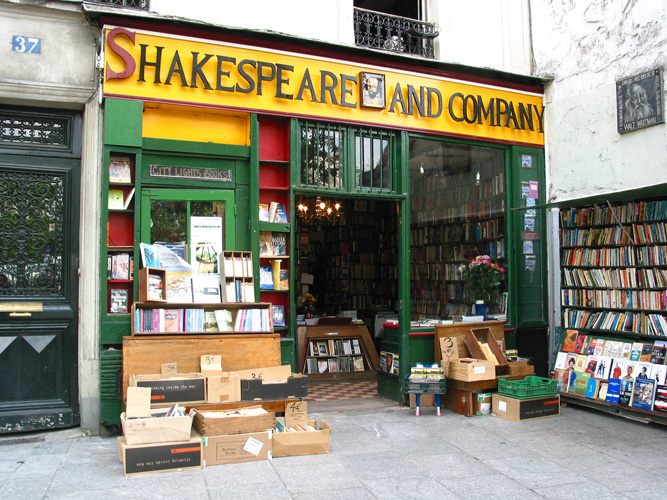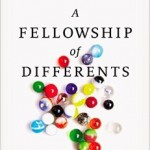Everything that rises must converge. Well, here is a fun convergence of interests.
I am writing a chapter on hospitality for the Slow Church book. I have reference volumes stacked ten-high on my desk at home. But in the car to and from work I have been listening to audiobooks by Ernest Hemingway. The first audiobook I listened to is my favorite Hemingway book: A Moveable Feast, which is about Hemingway’s time as a young writer in 1920s Paris. In fact, the Hemingway kick was inspired by Woody Allen’s film Midnight in Paris – also partially set in the 1920s – a movie I compulsively rent and watch the way Mel Gibson’s character in Conspiracy Theory buys copies of The Cather in the Rye.
In A Moveable Feast, Hemingway reminisces about visiting Shakespeare and Company, the legendary English language bookshop run by Sylvia Beach at 12 rue de l’Odeón. Beach had a rental library in the bookstore; books were available to check out for a small rental deposit. But Hemingway was poor and shy, and he didn’t have enough money for the deposit the first time he visited the shop. Yet Beach welcomed him in, gave him a library card, told him to pay the deposit whenever he could, and urged him to take as many books as he wished. He wrote:
There was no reason for her to trust me. She did not know me and the address I had given her, 74 rue Cardinal Lemoin, could not have been a poorer one. But she was delightful and charming and welcoming and behind her, as high as the wall and stretching out into the back room which gave onto the inner court of the building, were shelves and shelves of the wealth of the library.
This strikes me as a uniquely lovely display of hospitality toward a young, very poor expatriate writer.
I bring this up because last night I watched an interesting video posted on the The New Yorker‘s Book Bench blog, about George Whitman and the second iteration of the Shakespeare and Company bookshop. Like Beach’s store, which had closed for good during World II, Whitman wanted his his bookshop to be a haven of hospitality:
George had spent many years walking through South American and was touched by the hospitality of locals, who would often feed and accommodate him. This had a profound impact upon his life and led him to create a bookstore that is a sanctuary for writers, aspiring writers and artists. From the day that George opened he has invited writers to share his home. Some 50,000 have placed their heads on Shakespeare and Company’s famous pillows.
George Whitman died in 2011. The three-minute video features an interview with Whitman’s daughter, who has taken up where her father left off. It’s definitely worth watching:













